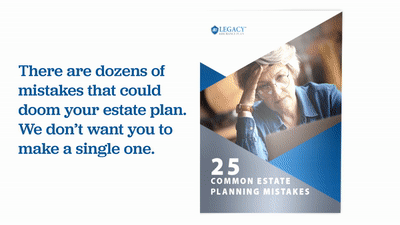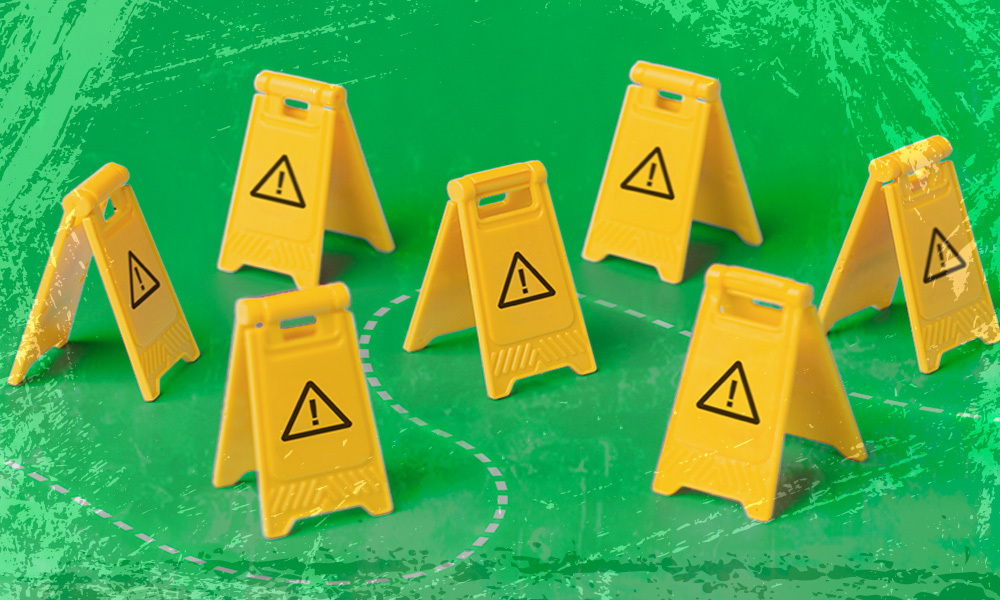Estate planning is a crucial but complex process that requires a thoughtful and strategic approach. It involves managing and distributing assets after one's passing, within intricate legal and financial frameworks. The complexity stems from various factors, such as understanding legal requirements, tax implications and aligning the plan with personal wishes and family dynamics. Expert guidance is often necessary to navigate these complexities effectively. The primary goal of estate planning is to protect assets and ensure they are passed on according to one's wishes. Avoiding common pitfalls in this process is essential to prevent unintended consequences, like disputes among heirs or unnecessary tax burdens, ensuring a smooth transition of your legacy.
Risky estate planning techniques and their drawbacks
In estate planning, certain methods such as using specific types of deeds for transferring real property might seem convenient but carry notable risks. For instance, methods like the "pocket deed," where a property is deeded to someone but not recorded until the owner's death, can backfire significantly.
If the deed is accidentally recorded or discovered during the owner's lifetime, it could lead to a loss of control over the property. Furthermore, this approach might lead to hefty tax liabilities for the beneficiary upon the property's eventual sale due to the loss of step-up in basis tax benefits.
Another risky method involves adding a beneficiary directly to the property's deed, which can create complications like the potential loss of homestead exemptions, and problems if the beneficiary faces legal issues like divorce or lawsuits. These examples underscore the need for cautious and informed estate planning to avoid unintended consequences.
Consequences of improper estate planning

Improper estate planning can lead to significant financial and legal issues. Poorly designed strategies might result in heightened tax responsibilities and legal conflicts, creating risks for property ownership. For example, specific deed transfers, if not handled correctly, could inadvertently incur substantial tax expenses or cause the loss of crucial tax advantages, like the step-up in basis. This can substantially affect the financial security of beneficiaries, underscoring the importance of careful and informed estate planning.
The critical role of estate planning professionals
The role of estate planning professionals, particularly experienced attorneys, is crucial in navigating the complexities of estate planning. They bring expertise in legal aspects and assist in developing strategies that are both safe and effective, aligning with your goals. Consulting with these professionals ensures a reliable approach to estate planning, similar to how one would consult a doctor for medical advice. Their guidance helps in avoiding risky methods and ensures that your estate plan is legally sound and tailored to your specific needs. For comprehensive understanding and assistance in estate planning, it's advisable to engage with experienced estate planning attorneys.
Safe and effective estate planning strategies
Safe and effective estate planning strategies prioritize asset preservation and the achievement of specific estate goals, minimizing unnecessary risks. Key approaches include establishing trusts, which offer a structured way to manage and distribute assets. Making accurate beneficiary designations ensures that assets are transferred to the intended recipients. Additionally, employing tax-efficient methods is crucial for minimizing potential tax liabilities, thereby protecting the financial interests of beneficiaries. These strategies collectively aim to ensure that assets are managed and distributed according to the estate owner's wishes, while also navigating legal complexities effectively.
Importance of regular estate plan reviews and updates

The necessity of regular reviews and updates in estate planning cannot be overstated. Estate plans should be dynamic, evolving with changes in personal circumstances such as marriage, divorce or the birth of a child. These life events can significantly impact estate plans, making it essential to periodically reassess and modify them. Regularly updating your estate plan ensures that it remains aligned with your current life situation and objectives, effectively guarding against potential risks associated with outdated planning elements. This proactive approach maintains the relevance and effectiveness of your estate plan, ensuring that your intentions are accurately reflected and executed.
Conclusion
Estate planning is a vital process that necessitates thorough consideration and professional advice. By being aware of the risks associated with certain strategies and engaging with expert advisors, you can confidently navigate estate planning. Regularly updating your plan is crucial for ensuring it aligns with your current wishes, providing you and your loved ones peace of mind for the future. This proactive and informed approach is key to successful estate planning.



